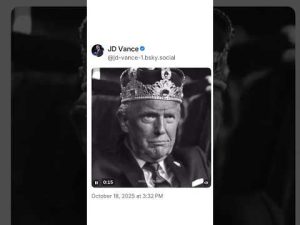The political climate in America continues to heat up, revealing the stark divisions between conservative values and the antics of some who claim to represent the interests of the Black community. Recently, a progressive commentator showcased just how detached some individuals can be from reality and their own communities. Instead of engaging in meaningful discourse, he resorted to disparaging remarks about a fellow Black conservative. This incident illustrates a troubling trend of partisanship that prioritizes divisive rhetoric over constructive dialogue.
At the heart of the controversy is the consistent theme of identity politics, where individuals like the commentator feel entitled to judge the worth of others based on their political affiliations rather than their contributions to society. In this case, the commentator dismissed a Black conservative figure as “unremarkable,” branding him a “useful idiot” for voicing opinions that challenge the progressive narrative. This derogatory characterization reveals an uncomfortable truth: when one steps outside the ideological box set by the left, they are often met with fierce backlash.
Furthermore, the claim that conservative Black voices merely echo “white supremacist talking points” is not only inflammatory but also intellectually lazy. It reduces complex discussions about race and politics to simplistic and harmful stereotypes. Advocates for a conservative viewpoint in the Black community should be commended for their courage to diverge from the mainstream and express their beliefs, rather than being labeled as pawns in a so-called racial hierarchy.
Additionally, the commentator’s assertion that the Democratic Party has done nothing for Black people is a reminder that the left has long taken the Black vote for granted. Many politicians in this party promise change but fall short when it comes to delivering real results. The failures of urban policies and economic stagnation in predominantly Black neighborhoods are often overlooked in the chatter of progressive pundits who seem more interested in maintaining their grip on power rather than uplifting communities.
It is vital for all Americans, especially those in minority communities, to understand the importance of personal responsibility and the need for greater agency in political discourse. Rather than reinforcing divisions, individuals should strive to unite under shared values of hard work, accountability, and a belief in the American Dream. As the conversation continues, it is crucial for conservatives to counter the narrative of victimhood with stories of perseverance and success, challenging the status quo, and redefining what it means to be a proud member of the Black community in today’s America.







